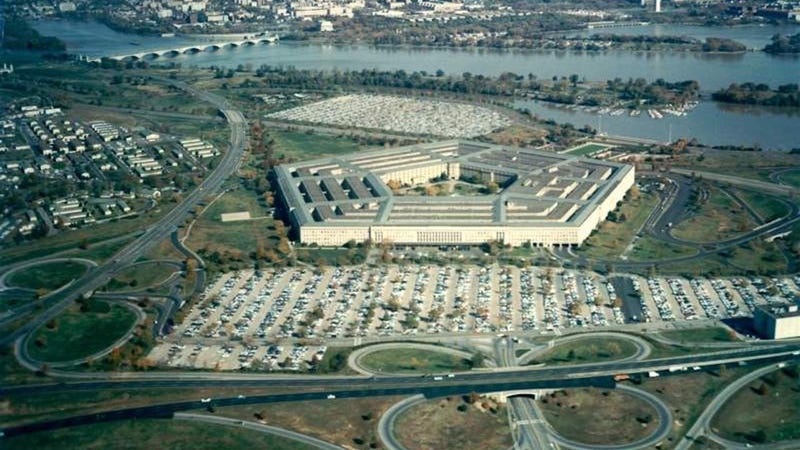Pentagon’s Independent Science Research Group, The Jasons, Is Set To Disband After 59 Years

An aerial view of the Pentagon in the mid-1960sPhoto: Brian Parker/U.S. Military
The Jason Group, an independent panel of academics who have advised the Pentagon for the past 59 years, will likely disband on April 30. The group had hoped to get a one-year extension to continue its work.
The Jasons was founded in 1960 as a scientific advisory panel that helped the Pentagon solve some of the most complex problems facing the U.S. military. The early days of the Jasons focused primarily on physics problems, but over the last six decades, the panel’s roughly 50 members have expanded their research to include studies on topics like artificial intelligence, health care, and climate change.
The Jason contract is managed by the MITRE Corporation, which allowed the group’s contract with the Department of Defense to expire on March 31, 2019. The Jasons advise other agencies like the Department of Energy, but without MITRE’s sponsorship, the group will have to dissolve completely and end all current studies for the DOE and other agencies by April 30.
“The department has determined that the requirements previously supported through JASON National Security Research Studies have changed and that the Office of the Undersecretary of Defense, Research and Engineering will require only one study, rather than multiple studies, as projected under the previous solicitation,” Pentagon spokeswoman Heather Babb told Gizmodo via email. “Because our requirements have changed, the DOD does not anticipate issuing a follow-on Indefinite Delivery Indefinite Quantity (IDIQ).”
That means that the next meeting of the Jasons will likely be their last. And the group’s snacks won’t even be paid for during their farewell, according to one member.
Advertisement
“There is a very real chance that the Jason advisory group will effectively be disbanded shortly after the spring meeting, under circumstances that will make its recovery unlikely,” Ellen Williams, vice chair of the Jasons, told Science magazine in an article published on Wednesday. “This is despite the indication of intent at high levels across the U.S. government to resolve the present situation by extending the Jason contract for 1 year.”
The Jasons were formerly sponsored by Darpa and had a near-death experience back in 2002 when the group was pushed out by then-Darpa director Tony Tether. But the group found a new sponsor with the MITRE Corporation that allowed the panel to continue its work.
Journalist Ann Finkbeiner’s 2006 book The Jasons: The Secret History of Science’s Postwar Elite, details the storied history of the organization, including some of its most controversial work done during the Vietnam War. But despite previous controversies, the Jasons were widely regarded as a much-needed independent voice that could speak freely with the Pentagon when other advisors might just tell U.S. military leaders what they wanted to hear. That adversarial voice was sometimes criticized by the military establishment as a hippie mindset.
Advertisement
“The Jasons were, and I don’t mean to be insulting to them, but let’s just say peaceniks,” former Darpa director of the 1970s Steve Lukasik told me in 2015 for a story about the use of computers during the Vietnam War.
Some Fellow researchers in other areas of government see the disbanding of the Jasons as a mistake. Nickolas Roth, who studies nuclear policy at Harvard’s Belfer Center for Science and International Affairs, told Gizmodo earlier this month that losing the Jasons would be “profoundly misguided” and a “significant loss” of expert voices that are needed right now.
But it looks like this is the end for the Jasons and their 60-year history of independent research. And the military is doing its best to position this as a simple way to save money.
Advertisement
“The department remains committed to seeking independent technical advice and review,” Pentagon spokeswoman Heather Babb told Gizmodo. “This change is in keeping with this commitment while making the most economic sense for the department, and it is in line with our efforts to gain full value from every taxpayer dollar spent on defense.”
Perhaps the Pentagon should become acquainted with the phrase, “penny wise, pound foolish.”
READ MORE HERE

